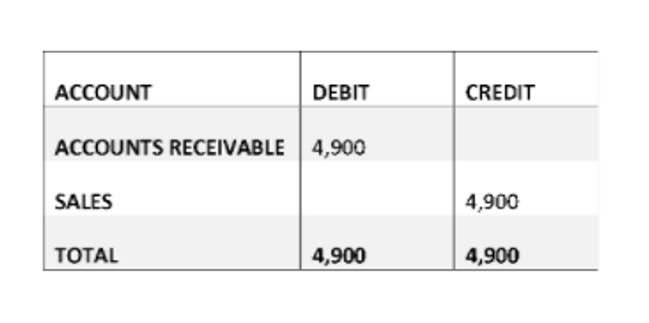Management accounting Wikipedia

You may also want to track industry-specific KPIs that help you benchmark performance against competitors. Access and download collection of free Templates to help power your productivity and performance. Appropriately managing accounts receivable (AR) can have positive effects on a company’s bottom line. An accounts receivable aging report categorizes AR invoices by the length of time they have been outstanding. For example, an AR aging report may list all outstanding receivables less than 30 days, 30 to 60 days, 60 to 90 days, and 90+ days.
- Companies typically don’t hold past due AR because it can affect their bottom line and is a credit risk.
- It also outlines payback periods, so management is able to anticipate future costs and benefits.
- For example, Daryn’s Dairy, a major producer of organic dairy products in the Midwest, has made increasing the market share of its products one of its strategic goals.
- The process involves reviewing proposals, deciding if there is a demand for products or services, and finding the appropriate way to pay for the purchase.
What is management accounting?
For example, a midsize manufacturing company needs to constantly track trends, unit costs and other information to succeed. A small service business, on the other hand, may benefit from simple targeted information, such as overhead costs and break-even points. By learning about management accounting, you can determine what accounting level, types and functions can help your business succeed. You can make data-driven decisions based on your finances, but this data shouldn’t be the only factor you consider. In business, financial accounting refers to the act of recording a company’s financial transactions, which are typically examined by investment banking analysts and shareholders of public corporations. A separate practice known as managerial accounting refers to the discipline of record-keeping with an eye towards budgeting and performance measurement, typically conducted by managers.
- Bottlenecks cause delays in the business process of a company and can prove very costly in the end.
- This includes increased job opportunities, higher annual earnings, and distinction within your industry.
- Professional designations, like the CMA and the chartered global management accountant designation, and experience can help you command a higher salary and put you higher up on the career ladder.
- If you want to take your number-crunching job to a higher level, management accounting might be a good fit for you.
- At the end of the day, the success of your business will be the result of the choices you made along the way.
- The distinction between traditional and innovative accounting practices is illustrated with the visual timeline (see sidebar) of managerial costing approaches presented at the Institute of Management Accountants 2011 Annual Conference.
CONSTRAINT ANALYSIS
Cash flow analysis is a part of managerial accounting since companies need sufficient cash to meet their bills. Managerial accounting is important for drafting accurate and complete financial statements for internal use and crafting a company’s long-term strategy. Without good managerial managerial accounting accounting, corporate leadership can struggle to make appropriate choices or misunderstand the firm’s true financial picture. Because managerial accounting documents are not official, they do not have to conform to GAAP and can be used internally for a variety of purposes.
Resources for Your Growing Business
Below are three high-level areas that managerial accounting is often employed to enhance the internal financial metrics of a company. Managerial accounting is the process of measuring and analyzing your company’s financial data for the purpose of informing the decision-making process for managers. You can also use it to support a wide range of business decisions, including budget creation, vendor selection, product selection, and defining sales and marketing strategies. Marginal costing (sometimes called cost-volume-profit analysis) is the impact on the cost of a product by adding one additional unit into production. The contribution margin of a specific product is its impact on the overall profit of the company.

Managerial accounting helps determine the appropriate controls for measuring the success of a plan. Other controls can be physical controls, such as fingerprint identification or password protection. Essentially, the controlling function in management involves helping to coordinate the day-to-day activities of a business so that these activities lead to meeting corporate goals.
Managers must ultimately determine whether the company has met the goals set in the planning phase. Evaluating, also called assessing or analyzing, involves comparing actual results against expected results, and it can occur at the product, department, division, and company levels. When there are deviations from the stated objectives, managers must decide what modifications are needed. Information, such as product profitability, would come from the managerial accounting function.

Remember, you’ll need at least an undergraduate degree and may need to start as a CPA or staff accountant. After a few years in the industry, you’ll be able to earn a designation that can help you work your way up the corporate ladder and command a higher salary. They prepare data—recording and crunching numbers—that their companies use for budgeting and planning purposes. They are also responsible for managing risk, planning, strategizing, and decision making.

A company’s control over bottlenecks has a direct correlation to profitability, so this is a big one. Understanding the cause and effects of past bottlenecks can help with policy design and strategic planning. One of the most important ways businesses use management accounting is for margin analysis. This means landing a managerial accounting position will give you an excellent opportunity to impress your team while building valuable skills and relationships. Throughout my career, I’ve watched accountants work hard to land managerial accounting roles that have skyrocketed their careers to new heights.
Accounts Receivable (AR) Management
This accounting either credits or debits the asset account and any increase in value of an asset is credited into an equity account as a revaluation surplus. Revaluation is an accounting technique that involves the review of the recorded book value of an asset in relation to its true market value. Revaluation accounting is only used where the fair value of an asset can be reliably measured. A company then re-evaluates an asset in accordance with this fair value and ensures that the new valuation does not widely vary from it.
For example, if a manager is interested in making decisions concerning inventory levels in several parts of the business, Management Accounting information is needed. Management accountants produce dedicated reports to serve the needs of decision-makers. Past and current activities are reported to the extent that such information helps management to plan for the future. Management accounting uses both financial and cost information to advise managers in planning and controlling the organization. If you want to take your number-crunching job to a higher level, management accounting might be a good fit for you.
comments Are Disabled